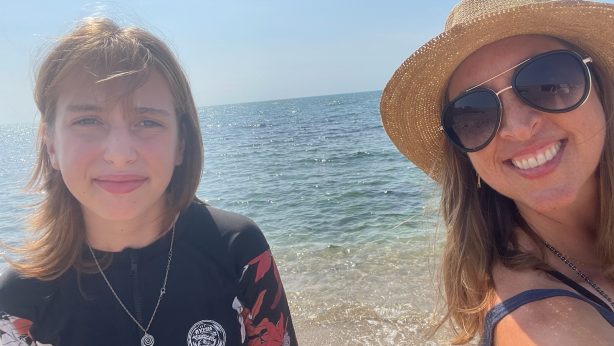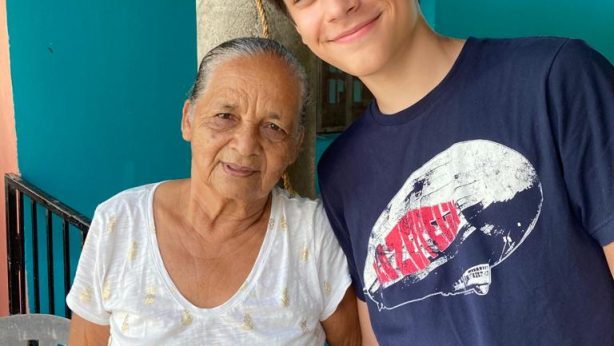In the Field with Adelante’s General Manager
I recently visited a rural area outside the city of Choluteca where we are opening a new assembly. Three of our clients from an existing assembly recently moved to this area and currently must walk an hour in the blazing sun just to catch the bus that takes them to their assembly every two weeks. However, we are in the process of identifying new clients in the area to form the new assembly. This will not only give more women in this community the opportunity to become business owners, these three clients will no longer have to make this long walk every two weeks.
This colonia lacks electricity, running water and every other type of public infrastructure one could hope for. It is literally a field in the middle of a dusty, scorching-hot desert. But the community’s residents are happy to be here. The Mayor of the city of Choluteca arranged for the land to be donated to them and they are currently in the process of receiving Dominio Pleno, or title to their land. One client – Sarahí – explained to me how they rented the home they used to live in, “It was in much better condition, but this land is ours.” She told me how, little by little, she knows their living conditions will improve, and how she and her husband are excited to construct a better home once they have the resources to do so.
During my visit, Sarahí explained to me how her son, Ariel, had been sick for weeks with an intestinal infection. She says he used to be “gordito” but is now very thin. As a mother myself, it was hard for me to imagine how one would keep her children healthy in this environment. I thought of how many times a day I tell my children to “wash your hands!” Here, there was not a faucet in sight. Instead, there were two wells available for the community’s inhabitants to access water for their families. To provide for her children the best she can, Sarahí sells honey that her husband produces from his small apiary.
One of the most extreme examples of inadequate housing within this settlement was this home – constructed from cardboard boxes, plastic sheets and sticks. Although the conditions that these families live under are depressing, especially to readers who have not been exposed to this type of poverty, my intentions for sharing are not to make the reader feel bad. Meeting with these clients was wonderfully inspiring for me. I talked at length with Sarahí and the other women. Each woman I met was very expressive in her gratitude for the opportunity to become an independent business owner, and was filled with ambition to better support their families.
Egipcia and Rosa are two other clients in this area. Rosa runs a small convenience store from her home, while Egipcia makes and sells tortillas next door. As one of only two stores of its kind in the community, Rosa sees great potential in her business. Currently she pays about $1.25 every two weeks to charge a car battery which in turn powers two light bulbs for her home and business. Although this does not give her sufficient access to electricity, it is a start. Egipcia also has limited access to electricity and must depend on an inefficient wood stove which to make her tortillas. Her home fills with smoke as she makes her tortillas and she and her children are left to breathe in the contaminated air. Egipcia would be an excellent candidate for an eco-stove – a project that we hope to undertake soon.
These women and their families are pioneers in search of a better life. They are the epitome of the human spirit – full of life, love for their children and hope for the future. Our Choluteca staff’s dedication to our institutional mission as demonstrated by the initiative to open this new assembly was inspiring to me; and I was humbled by the warm, welcoming smiles that we received from our clients. For me, this visit re-affirmed my commitment to our work and reminded me how truly important it is.


